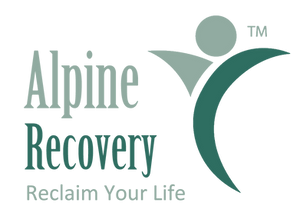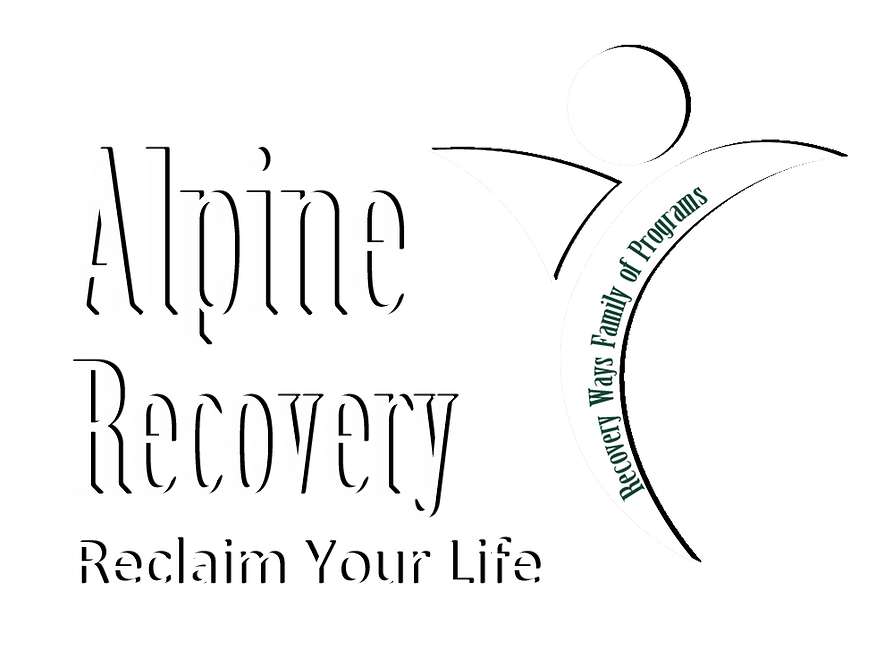Substance Use Treatments in Everett
Substance use disorders can impact anyone—regardless of age, background, or lifestyle. Whether it’s alcohol, prescription drugs, or illicit substances, addiction is a chronic medical condition that requires professional support and understanding. If you’re in the Everett area and seeking help, you’re not alone. There are many high-quality substance use treatments in Everett designed to support individuals through every stage of recovery. This comprehensive guide will help you understand your options, what to expect from treatment, and how to choose the right program tailored to your needs. Whether you’re looking for care for yourself or a loved one, this article offers clarity, direction, and hope.
Understanding Substance Use Disorders
Before diving into available substance use treatments in Everett, it’s important to understand what substance use disorder (SUD) entails. SUD is a medical condition characterized by an inability to control the use of a legal or illegal substance. It affects brain function, behavior, and physical health. Left untreated, it can lead to serious consequences including mental health challenges, job loss, strained relationships, and legal issues. Recovery is possible, but it requires a structured and supportive approach. Fortunately, Everett, WA, is home to a variety of treatment centers that use evidence-based practices to help individuals achieve long-term recovery.
Types of Substance Use Treatments in Everett
Treatment for substance use disorders can vary widely depending on individual needs, the type of substance being used, and the severity and duration of the addiction. Effective treatment often requires a personalized approach that addresses both physical and mental health, as well as social and environmental factors. Below are the most common types of substance use treatments available in Everett, designed to provide comprehensive care and support for recovery:
1. Assessment
The assessment process at substance use treatment centers is a critical first step in creating an effective, personalized treatment plan. This process typically begins with a comprehensive evaluation conducted by a team of medical and mental health professionals. During the assessment, clinicians gather detailed information about the individual’s substance use history, including the types of substances used, duration, frequency, and any previous attempts at quitting. They also assess the person’s physical health, often through medical examinations and lab tests, to identify any co-occurring health conditions or complications caused by substance use, such as liver damage or nutritional deficiencies. Mental health is another key focus, as many individuals struggling with substance use disorders also experience underlying conditions like anxiety, depression, or trauma. The assessment often includes psychological evaluations and discussions about personal and familial history of mental health issues. Additionally, the process considers the individual’s social and environmental factors, such as support systems, living conditions, and daily stressors, to determine how these elements may influence recovery. Based on the findings, the treatment center develops a tailored plan that may include therapy, relapse prevention, continuing care, or other interventions designed to address the unique needs of the individual. This thorough and structured assessment ensures that treatment is not only comprehensive but also aligned with the person’s specific challenges and goals, laying the foundation for long-term recovery.
2. Partial Hospitalization Programs
Partial hospitalization programs (PHPs) for substance abuse and addiction offer a structured yet flexible treatment option for individuals seeking to overcome addiction while maintaining their daily responsibilities. These programs are designed to provide an intensive level of care similar to that of inpatient treatment but allow patients to return home at the end of each day, making it an ideal solution for those who have stable living environments and a strong support network. PHPs typically include a comprehensive suite of services tailored to address the multifaceted nature of addiction. The goal is to equip participants with the skills and coping strategies needed to navigate the challenges of recovery in real-world settings, thereby reducing the risk of relapse. Furthermore, these programs often emphasize family involvement in the treatment process, recognizing the crucial role loved ones play in providing support and understanding throughout the journey towards sobriety. By offering a blend of rigorous therapeutic interventions and the flexibility to engage in everyday life, partial hospitalization programs represent a vital resource for many individuals striving to reclaim their lives from addiction.
3. Intensive Outpatient Treatment Program (IOP)
Outpatient programs allow individuals to live at home while attending scheduled therapy and treatment sessions. These are suitable for individuals with milder addictions or those transitioning out of inpatient rehab. In Everett, outpatient treatment includes access to experienced addiction specialists and licensed counselors who provide personalized support and guidance throughout the recovery process. There are varying levels of outpatient care, including standard outpatient, intensive outpatient programs (IOP), and partial hospitalization programs (PHP).
4. Relapse Prevention Services
Relapse prevention services play a critical role in the journey of recovery, offering a lifeline to those navigating the turbulent waters of overcoming addiction. These services are designed with the understanding that recovery is not a linear process but one filled with potential setbacks and challenges. By providing individuals with a comprehensive toolkit of strategies, support systems, and educational resources, relapse prevention programs aim to empower individuals to recognize early warning signs of relapse, develop coping mechanisms to deal with cravings and triggers, and build a robust support network that fosters accountability and encouragement. This holistic approach addresses not just the physical aspects of addiction but also the psychological patterns that contribute to substance use, helping individuals to make lasting changes in their behavior and thought processes. Moreover, relapse prevention services extend beyond just the individual in recovery; they also offer guidance and support for families and loved ones, teaching them how to create a supportive home environment that minimizes triggers and promotes wellness for everyone involved. In essence, these services are about building resilience—equipping those in recovery with the tools they need to navigate life’s challenges without reverting back to substance use, thereby paving the way for long-term sobriety and improved quality of life.
Key Components of Treatment in Everett
All effective substance use treatments in Everett share a few core elements, such as personalized care, evidence-based approaches, and ongoing support. These foundational aspects are designed to address not just the symptoms but also the root causes of substance use. Understanding these elements can help you choose a program that aligns with your unique needs and recovery goals, ensuring the best possible chance for long-term success.
1. Individualized Care Plans
No two recoveries are the same because every individual’s journey is unique. Reputable treatment centers in Everett recognize this and start with a comprehensive assessment to create personalized treatment plans. These plans take into account a variety of factors, including medical history, the type and duration of substance use, co-occurring mental health conditions, and individual lifestyle needs. By addressing these unique elements, these centers aim to provide a holistic approach to recovery that supports long-term success and overall well-being.
2. Family Involvement
Addiction affects the entire family, not just the individual struggling with it. Many Everett treatment centers recognize this and offer family support as part of their programs. These sessions are designed to rebuild trust, improve communication, and help family members understand the challenges of addiction. By working together, families can create a stronger support network at home, fostering an environment that encourages long-term recovery and healing for everyone involved.

3. Aftercare Support
Recovery doesn’t end after treatment. Ongoing support is critical to prevent relapse. Many substance use treatments in Everett offer aftercare services to ensure continued support throughout the recovery journey.
Finding the Right Treatment in Everett
Choosing the right facility is one of the most important steps in the recovery journey, as it can greatly impact the success and comfort of the process. With so many options available, it’s essential to understand what each program offers and how it aligns with your specific needs. Here are a few tips to help you evaluate and select from the various substance use treatments in Everett:
1. Check Accreditation
Look for facilities accredited by organizations like the Commission on Accreditation of Rehabilitation Facilities (CARF) or the Joint Commission. Accreditation ensures high standards of care.
2. Ask About Specializations
Some centers may specialize in opioid addiction, while others are better equipped to treat co-occurring disorders or youth addiction. Choose a facility that aligns with your specific needs.
3. Verify Insurance Coverage
Many facilities accept private insurance, Medicaid, or state-funded plans. Confirm coverage and discuss payment options during your initial consultation.
4. Consider Location and Environment
While Everett offers both urban and more secluded rehab settings, consider what environment will be most conducive to your healing—whether it’s close to home or a more private retreat.
5. Review Treatment Length and Flexibility
Programs can vary in duration—from short-term to 90-day residential stays. Make sure the program you choose fits your availability and level of need.
What to Expect During the First Week of Treatment
The first week of treatment can be emotionally and physically challenging. Here’s a general overview of what you might experience during that initial period at a substance use treatment center in Everett:
Intake and Assessment
- Medical evaluation
- Psychological screening
- Treatment plan development
- Introduction to facility staff and rules
Initial Treatment Phase
- Monitoring vital signs
- Rest and recovery
- Begin counseling sessions
- Introduction to recovery community
- Education about addiction and relapse prevention
Being prepared for this intense initial week can help reduce fear and set realistic expectations.
Final Thoughts: There Is Hope
Addiction can feel isolating and overwhelming, but recovery is always possible with the right support. If you’re exploring substance use treatments in Everett, you’re taking a courageous and life-affirming step. Whether you need intensive outpatient care, partial hospitalization services, or simply someone to talk to, Everett has the resources to guide you toward a healthier future. For further assistance and guidance contact us today by calling 1 (360) 658-1388 or visiting our website. Remember, the journey of a thousand miles begins with a single step. Let that step start today.



